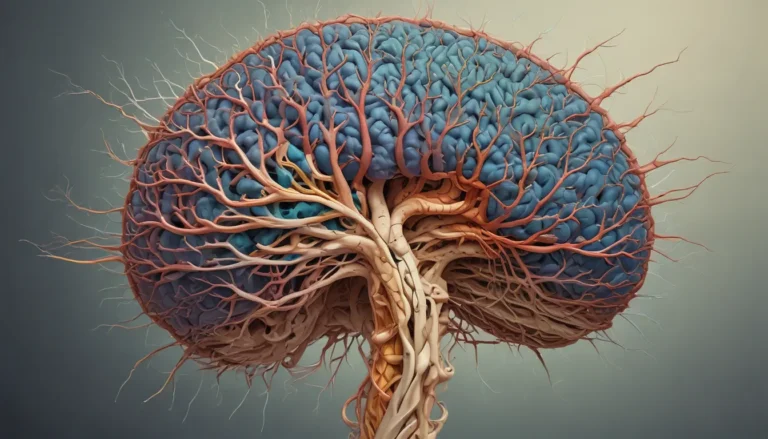A Note About Images: The images used in our articles are for illustration purposes only and may not exactly match the content. They are meant to engage readers, but the text should be relied upon for accurate information.
In the realm of modern medicine, antiviral drugs stand as powerful weapons in the fight against viral infections, ranging from the common flu to complex viruses like HIV. These medications have not only transformed the landscape of disease treatment but also hold a treasure trove of mind-blowing facts that shed light on their remarkable impact on human health. Join us as we unravel nine fascinating and awe-inspiring facts about antiviral drugs that will leave you in awe of their effectiveness and the strides made in the field of virology.
The Power of Antiviral Drugs
- Antiviral drugs are potent medications designed to combat viral infections, reducing the severity and duration of illnesses like the flu and HIV/AIDS. These medications can also be used preventively in high-risk individuals.
- Some viruses can develop resistance to antiviral drugs, posing a challenge to treatment. Nevertheless, researchers are tirelessly working on developing new and effective antiviral medications to combat resistant strains and enhance treatment options.
Unveiling the Mechanisms of Antiviral Drugs
Antiviral drugs function by specifically targeting and inhibiting the replication and spread of viruses within the body. By honing in on the unique characteristics of viruses, these medications disrupt their ability to reproduce and cause infection. Through this mechanism, antiviral drugs not only alleviate the symptoms of viral infections but also prevent further spread of the virus to others.
A Broad Spectrum of Treatment
Antiviral drugs cover a wide spectrum, effectively treating an array of viral infections such as influenza, hepatitis, HIV/AIDS, herpes, and respiratory syncytial virus (RSV). Each antiviral medication is tailor-made to target specific viruses or groups of viruses, depending on their mechanisms of action and viral targets. This tailored approach enables healthcare professionals to customize treatment regimens based on the specific viral infection at hand.
Preventive Powers of Antiviral Drugs
In addition to treating viral infections, some antiviral drugs serve as preventive measures for individuals at high risk of contracting specific viral infections. For instance, antiretroviral drugs are used as pre-exposure prophylaxis (PrEP) to shield individuals from acquiring HIV. Similarly, medications like oseltamivir (Tamiflu) can be taken to mitigate the risk of influenza infection in individuals exposed to the virus.
Managing Chronic Infections
Individuals grappling with chronic viral infections like hepatitis B or C rely on antiviral drugs to manage their conditions. These medications help suppress the replication of the virus, slow down disease progression, and mitigate the risk of serious complications such as liver cirrhosis or liver cancer.
Navigating Side Effects
While tremendously beneficial, antiviral drugs, like any medication, may trigger side effects. These side effects, ranging from nausea and diarrhea to headache and fatigue, vary depending on the drug and the individual. It is imperative to discuss the potential risks and benefits of antiviral treatment with a healthcare professional before commencing any medication regimen.
The Challenge of Antiviral Resistance
Antiviral resistance, akin to antibiotic resistance, poses a formidable obstacle in healthcare. Viruses evolve over time, developing resistance to certain antiviral drugs. This evolution complicates the effective treatment of viral infections, necessitating ongoing research and development of new antiviral medications to combat resistant strains.
Diverse Mechanisms of Action
Antiviral drugs deploy a myriad of mechanisms to impede viral replication. Some drugs interfere with the production of viral DNA or RNA, while others inhibit viral enzymes critical for replication. Understanding these mechanisms is pivotal in crafting targeted and efficacious antiviral therapies.
The Limits of Antiviral Drugs
Despite their efficacy against numerous viral infections, antiviral drugs do not wield universal power against all viruses. Certain viruses, such as the common cold virus (rhinovirus), present challenges to antiviral medications. This underscores the necessity for continued research and development in the realm of antiviral drug discovery.
Enhancing Effectiveness Through Combination Therapy
In specific cases, combining multiple antiviral drugs can amplify their efficacy, notably in treating HIV/AIDS. Known as combination therapy or highly active antiretroviral therapy (HAART), this approach entails using a blend of different antiviral drugs to target various stages of the viral replication cycle, reducing the viral load and curtailing disease progression.
A Testament to Medical Advancements
Antiviral drugs have reshaped the medical landscape, delivering effective treatments for a multitude of viral infections. These marvels of modern medicine, by targeting specific viral components or inhibiting replication, have not only saved countless lives but also played a pivotal role in preventing and controlling viral outbreaks.
From their potent ability to combat viral infections to their promise in treating emerging infectious diseases, antiviral drugs continue to dazzle us with their potential. It is imperative to propel research and development in this domain to combat new viral strains and safeguard global health in the face of evolving viral threats.
Unraveling Antiviral Drugs: Your Burning Questions Answered
-
How do antiviral drugs work?
Antiviral drugs function by targeting specific components of the virus or inhibiting its replication, impeding the virus from entering host cells or hampering its ability to proliferate. -
Are antiviral drugs effective against all viral infections?
No, antiviral drugs are tailored to target specific viruses or viral families, as different viruses employ varied replication mechanisms. -
Are antiviral drugs safe to use?
While antiviral drugs, like all medications, may trigger side effects, their benefits typically outweigh the risks. Consulting with a healthcare professional before embarking on antiviral treatment is crucial. -
Can antiviral drugs prevent viral infections?
While primarily used to treat viral infections, some antiviral drugs can act preventively in high-risk individuals. Nonetheless, vaccination and proper hygiene practices remain the most effective means to reduce the risk of viral infections. -
How long does antiviral treatment last?
The duration of antiviral treatment varies based on the virus and the severity of the infection. Treatment courses can span from a few days to several weeks, underscoring the importance of adhering to prescribed regimens.
Embark on a captivating journey through the realms of medicine and science, exploring the intricate world of emerging infectious diseases, uncovering the significance of clinical trials in global health, or delving into the promising field of neuropharmacology. Each area offers a treasure trove of surprising facts and insights that will ignite your curiosity and broaden your understanding.
As we strive to deliver engaging and reliable content, rest assured that each fact on our site is contributed by individuals like you, adding a wealth of diverse perspectives and knowledge. Our dedicated editors meticulously review each submission, ensuring that the facts shared are not only captivating but also authentic. Trust in our commitment to quality and authenticity as you embark on a journey of discovery and learning with us.






